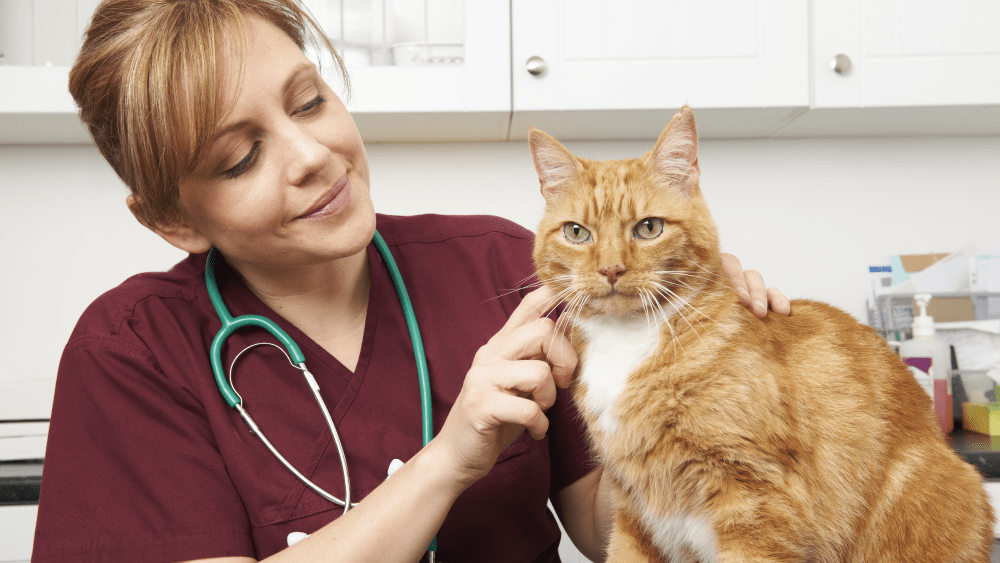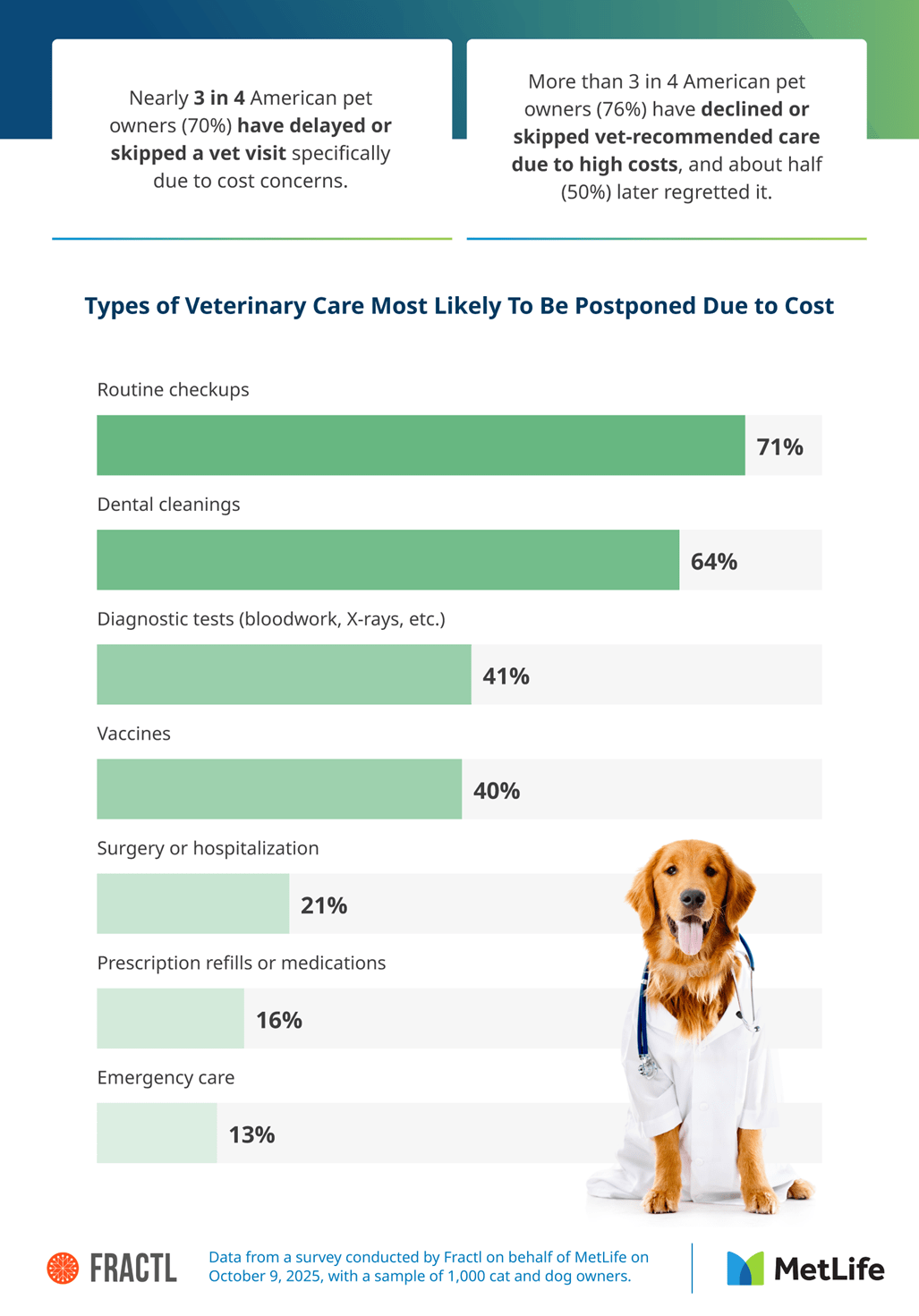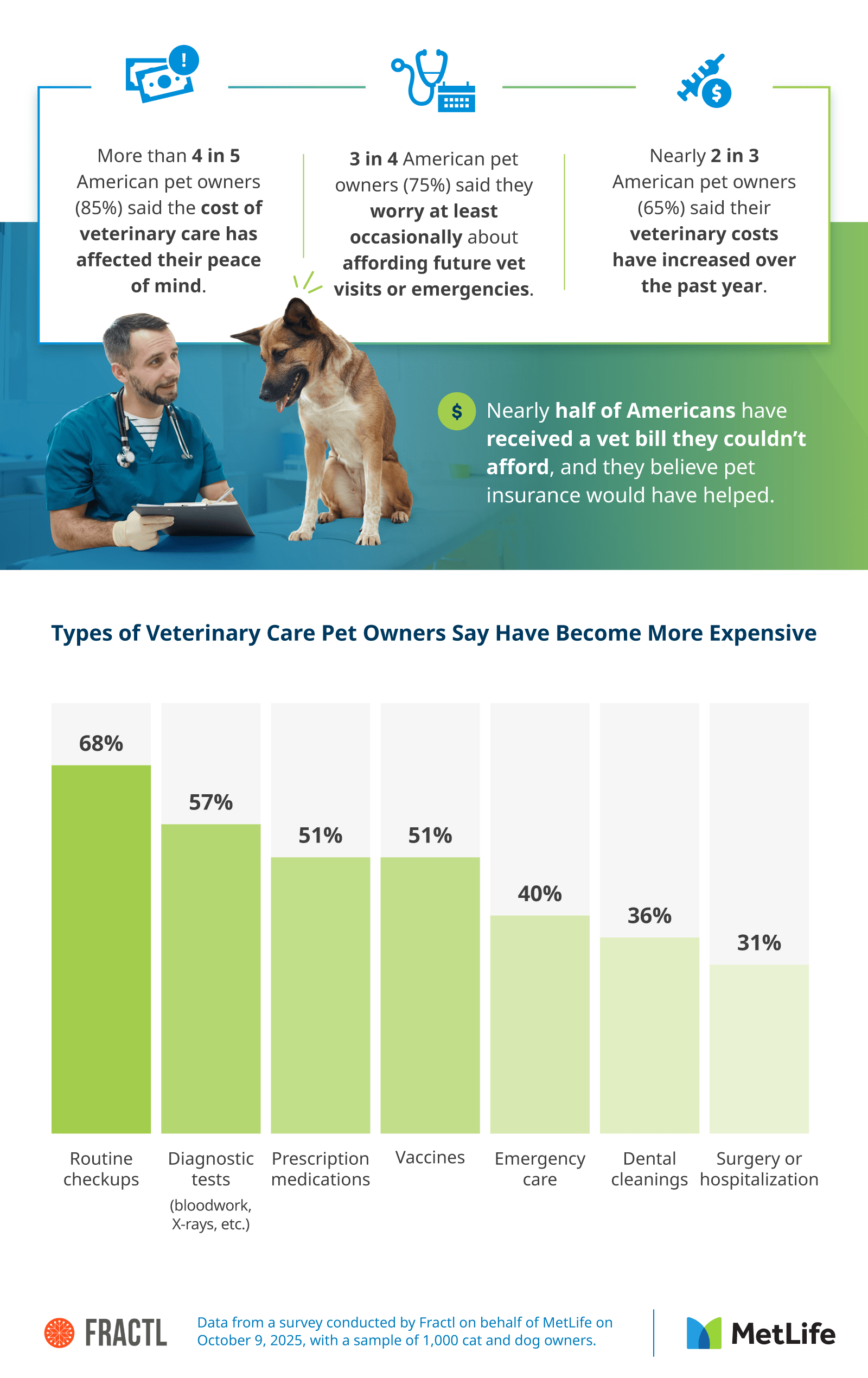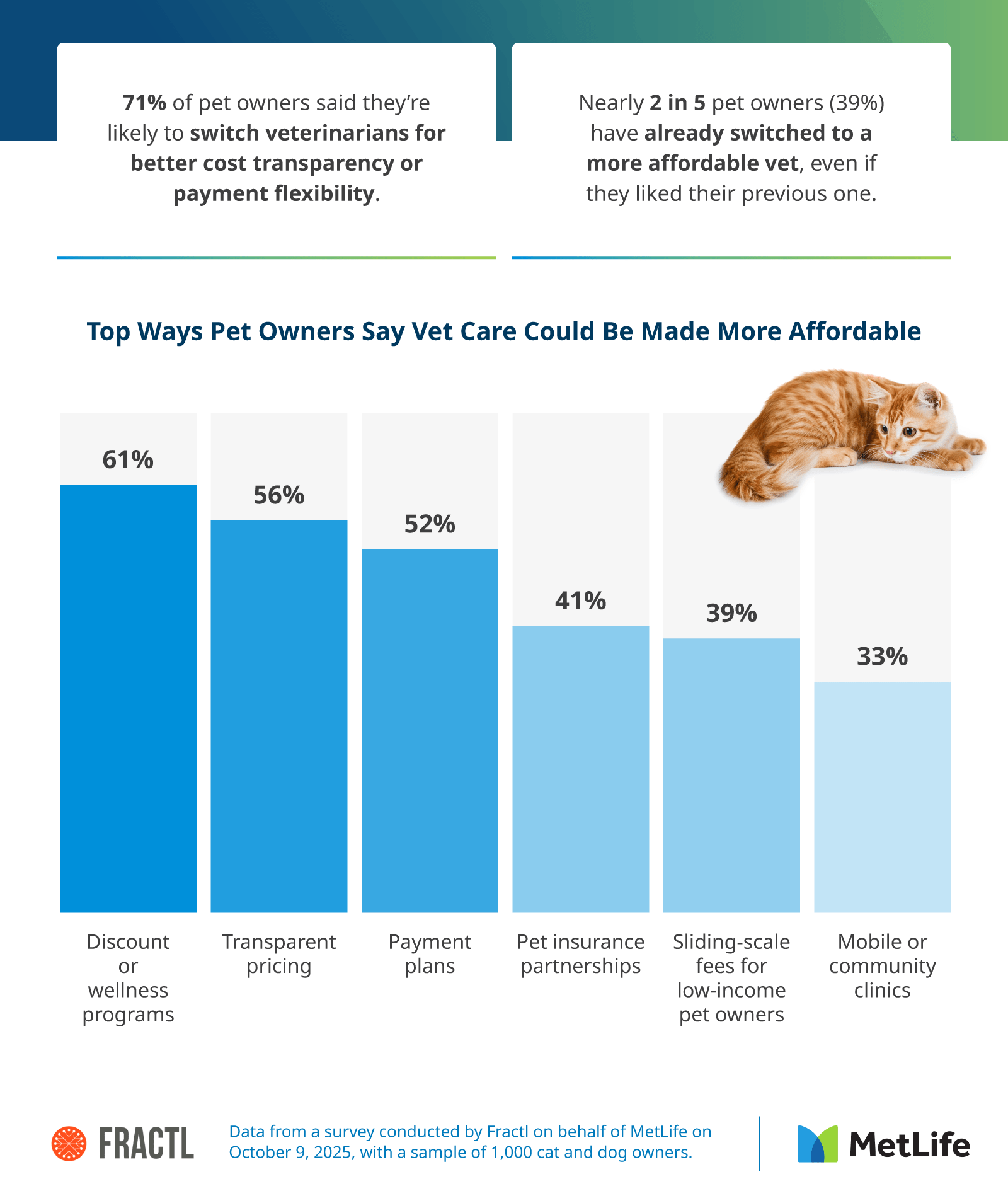Pet care is more expensive than ever, and for many American pet parents, that price tag is creating tough choices. A new survey of 1,000 U.S. dog and cat owners reveals how rising veterinary costs are causing delays in essential care, leading to health risks for pets and emotional stress for their owners. This study highlights the growing financial strain on pet families and uncovers the trade-offs people are making to care for their furry companions.
Key Takeaways
- Nearly 3 in 4 American pet owners (70%) have delayed or skipped a vet visit specifically due to cost concerns.
- More than 4 in 5 pet owners (85%) said the cost of veterinary care has affected their peace of mind.
- 3 in 4 pet owners (75%) said they worry at least occasionally about affording future vet visits or emergencies.
- Nearly half have received a vet bill they couldn't afford, where they believe pet insurance would have helped.
- Nearly 2 in 5 pet owners (39%) have already switched to a more affordable vet, even if they liked their previous one.
Why Pet Owners Delay Vet Visits
High costs are the top reason pet owners postpone vet care, even when it risks their pet's health.
Nearly 3 in 4 American pet owners (70%) admitted to delaying or skipping a vet visit because of cost. More than 3 in 4 (76%) also said they'd skipped vet-recommended care for the same reason, and about half of them later regretted it.
These delays aren't limited to one age group. Younger generations were slightly more likely to delay visits: 71% of millennials and 71% of Gen Z pet parents said they had done so, compared to 68% of Gen X and 60% of baby boomers.
Financial pressure is making even proactive owners reconsider care. Nearly half (49%) of those who have never delayed vet visits said they're now thinking about it due to rising costs.
For many pet owners, debt is a major factor. About 79% of Gen Xers and 70% of millennials said they've avoided care because they were in debt. Across all generations, most pet owners have declined or skipped vet-recommended care due to high costs, including 80% of Gen Xers, 76% of millennials, 75% of baby boomers, and 70% of Gen Z.
Instead of visiting the vet, many pet parents try to handle things themselves:
- 73% wait and monitor symptoms.
- 67% look up advice online.
- 53% try home remedies.
- 26% ask friends or post in social media groups for input.
- 17% do nothing and hope the issue resolves on its own.
The consequences of delaying can be serious. Over 1 in 3 pet owners (35%) said postponing care made their pet's condition worse or more expensive to treat later.
The Emotional Impact of Delaying Care
Beyond the financial burden, vet care delays are taking a toll on pet owners' mental health.
A large majority, 85%, said the cost of vet care has affected their peace of mind. Three in four worry at least occasionally about being able to afford future visits or emergencies, and nearly 2 in 3 (65%) said their costs have already increased over the past year.
The cost of veterinary care has affected the peace of mind of 89% of Gen Z, 87% of Gen X, 83% of millennials, and 80% of baby boomers. Financial anxiety is widespread as well, with 77% of Gen Z, 76% of millennials, 74% of Gen X, and 70% of baby boomers worrying at least occasionally about future vet bills.
Rising costs are being noticed across all generations, too. Sixty-seven percent of Gen X, 66% of baby boomers, 65% of millennials, and 61% of Gen Z said their expenses have increased over the past year. Nearly half of Americans have received a vet bill they couldn't afford, and they believe pet insurance would have helped.
About 1 in 5 pet owners (22%) said financial stress has strained their relationship with their pet, often leading to guilt or frustration. That tension was more common among Gen Z (32%) and millennials (24%) than Gen X (15%) and baby boomers (7%). Among those who have delayed or skipped a visit, 74% said they felt guilty, while 66% felt anxious. Nearly half also felt ashamed (49%), uncertain (48%), or helpless (47%).
Affordability concerns are even shaping future pet ownership, as 63% said worries about vet costs have made them second-guess adopting another pet.
How Pet Owners Are Adapting
Faced with financial stress, many pet parents are finding new ways to manage care.
Seventy-one percent said they would switch veterinarians for better cost transparency or more flexible payment options. Younger generations are especially open to switching. Seventy-eight percent of Gen Z and 74% of millennials said they'd make the change, compared to 64% of Gen X and 54% of baby boomers.
Nearly 2 in 5 (39%) have already made the switch to a more affordable vet, even if they liked their previous one. Millennials were the most likely to switch, with 43% saying they'd done so, followed by 37% of Gen Z, 36% of Gen X, and 28% of baby boomers.
One problem could be that not all pet owners feel heard. Nearly 1 in 5 (19%) said their current vet isn't accommodating when they bring up cost concerns. And while many are changing providers, they're also reassessing pet insurance. More than three-quarters of pet owners (77%) said their premiums increased in the past year, and that includes 85% of baby boomers, 80% of millennials, 76% of Gen X, and 72% of Gen Z.
Even so, 84% still believe pet insurance is worth it for the peace of mind it offers. When asked what's driving the rise in premiums, 46% pointed to higher vet prices overall. Others mentioned more advanced treatments (13%), more frequent claims (12%), and fraud or overbilling (8%). Another 21% said they weren't sure what caused the increase.
Pet parents also shared what would make care more affordable. Sixty-one percent want discount or wellness programs, 56% want more transparent pricing, and 52% want payment plans. Many also support partnerships with pet insurance providers (41%) and sliding-scale fees for low-income families (39%).
The Growing Gap Between Vet Costs and Care
The cost of veterinary care continues to rise, and it's putting real pressure on pet owners to make difficult decisions. From trying home remedies to switching providers, pet parents are doing what they can to care for their animals without sacrificing their financial well-being. As the gap between affordability and access to care grows, more owners are turning to creative solutions and hoping for a future where quality vet care is within reach for every pet family.




